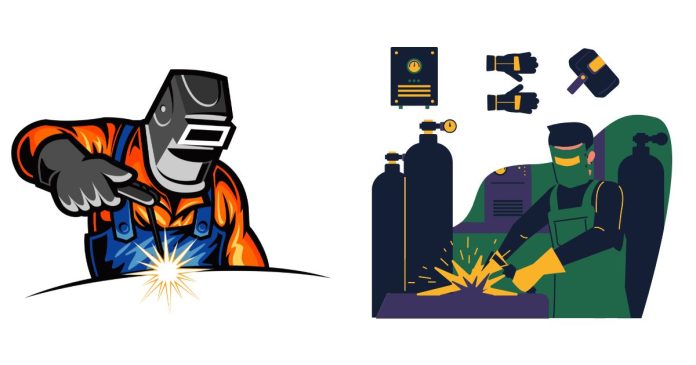The income of welders can vary widely depending on factors such as location, experience, type of welding, industry, and certifications. However, here’s a general breakdown of how much welders typically make in the U.S., as well as a look at factors that influence their salaries.
Average Salary Range:
- Entry-Level Welders:
- Annual Salary: Around $35,000 – $45,000
- Hourly Rate: $15 – $22 per hour
- For those just starting out or with less than a year of experience, salaries tend to be on the lower end of this range.
- Experienced Welders (5+ years):
- Annual Salary: Around $45,000 – $60,000
- Hourly Rate: $22 – $30 per hour
- With more experience, skill development, and sometimes certification, welders see a significant increase in pay.
- Highly Experienced or Specialized Welders (e.g., underwater, pipeline, aerospace welding):
- Annual Salary: Around $60,000 – $80,000+
- Hourly Rate: $30 – $45 per hour
- These welders often work in specialized industries that require advanced skills, and their pay reflects that expertise.
Factors that Influence a Welder’s Salary:
- Location:
- High-paying states: Welders in places like Alaska, Texas, California, and Louisiana tend to earn more due to the demand for their services and the higher cost of living.
- Low-paying states: In areas with fewer industrial jobs, wages can be lower. Some rural areas may offer less, but cost of living is often lower too.
- Industry:
- Oil & Gas/Pipeline Welding: Welders in this industry, particularly those working on pipeline jobs, often make significantly more, sometimes over $80,000 annually. These positions can require travel and working in harsh conditions, but the pay is high.
- Construction Welding: Construction welders earn around $40,000 – $60,000 depending on location, experience, and union membership.
- Aerospace and Military Welding: Specializing in industries like aerospace and military can bump salaries up significantly, especially for highly skilled welders.
- Automotive/Manufacturing Welding: Generally in the $40,000 – $55,000 range, but again, it depends on the type of welding and the company.
- Certification and Specialization:
- Certified Welders: Welders with certifications such as Certified Welder (CW) from the American Welding Society (AWS) can command higher wages. Specialized certifications in TIG welding, MIG welding, stick welding, pipe welding, and underwater welding lead to more job opportunities and higher pay.
- Union vs. Non-Union: Union welders generally make higher wages and receive better benefits (healthcare, retirement, etc.), although non-union jobs can still pay well depending on the company.
- Work Environment:
- Overtime and Hazard Pay: Welders working in hazardous conditions (e.g., underwater welding, high-risk construction, offshore oil rigs) can earn significant overtime and hazard pay, sometimes boosting their annual earnings by a substantial amount.
- Traveling Welders: Welders who take on traveling jobs or work for companies that require them to relocate for long periods (such as those in pipeline or construction work) may earn more due to per diem allowances and travel stipends.
- Self-Employed/Contract Welders:
- Freelance or contract welders may earn more than salaried employees, especially if they’re running their own business and have a steady flow of clients. However, self-employed welders must cover their own tools, insurance, and other business-related expenses.
- Hourly Rate for Self-Employed Welders: It can range from $25 to $75 per hour depending on location, expertise, and demand for their services.
Welding Jobs with the Highest Pay:
- Underwater Welding: Often considered one of the most dangerous and lucrative forms of welding, with experienced underwater welders making $50,000 – $100,000+ annually.
- Pipeline Welding: Welders working on pipeline construction projects, especially in the oil and gas industry, can earn high wages, especially with overtime and per diem. $60,000 – $90,000 is not uncommon.
- Aerospace Welding: High skill requirements in industries like aerospace and military welding mean that salaries for highly skilled welders can top $70,000+ annually.
Conclusion:
Welders in the U.S. generally earn anywhere between $35,000 to $80,000+ annually depending on their level of experience, specialization, and location. For those willing to invest in additional certifications and work in specialized or high-demand industries (like pipeline or underwater welding), the salary potential increases significantly.


